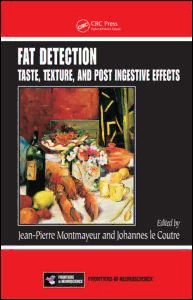
Fat Detection: Taste, Texture, and Post Ingestive Effects (Frontiers in Neuroscience) PDF
646 Pages·2009·6.371 MB·English
Most books are stored in the elastic cloud where traffic is expensive. For this reason, we have a limit on daily download.
Preview Fat Detection: Taste, Texture, and Post Ingestive Effects (Frontiers in Neuroscience)
Description:
Presents the State-of-the-Art in Fat Taste Transduction A bite of cheese, a few potato chips, a delectable piece of bacon – a small taste of high-fat foods often draws you back for more. But why are fatty foods so appealing? Why do we crave them? Fat Detection: Taste, Texture, and Post Ingestive Effects covers the many factors responsible for the sensory appeal of foods rich in fat. This well-researched text uses a multidisciplinary approach to shed new light on critical concerns related to dietary fat and obesity. Outlines Compelling Evidence for an Oral Fat Detection System Reflecting 15 years of psychophysical, behavioral, electrophysiological, and molecular studies, this book makes a well-supported case for an oral fat detection system. It explains how gustatory, textural, and olfactory information contribute to fat detection using carefully designed behavioral paradigms. The book also provides a detailed account of the brain regions that process the signals elicited by a fat stimulus, including flavor, aroma, and texture. This readily accessible work also discusses: The importance of dietary fats for living organisms Factors contributing to fat preference, including palatability Brain mechanisms associated with appetitive and hedonic experiences connected with food consumption Potential therapeutic targets for fat intake control Genetic components of human fat preference Neurological disorders and essential fatty acids Providing a comprehensive review of the literature from the leading scientists in the field, this volume delivers a holistic view of how the palatability and orosensory properties of dietary fat impact food intake and ultimately health. Fat Detection represents a new frontier in the study of food perception, food intake, and related health consequences.
See more
The list of books you might like
Most books are stored in the elastic cloud where traffic is expensive. For this reason, we have a limit on daily download.
